In the United Kingdom, translating marriage certificates for legal recognition involves a precise process that includes obtaining the original document, employing a professional translator accredited by recognized bodies like the ITI or CIOL, and ensuring the translated certificate adheres to UK legal standards. The translation must be certified by the same accredited translators, followed by authentication with either the UK Home Office or the Foreign and Commonwealth Office, with an apostille for Hague Convention countries or legalization for non-member states. This comprehensive approach ensures that the marriage certificate translation is legally valid and accepted both within the UK and internationally.
Navigating the legal intricacies of marriage across borders can be complex, particularly when verifying marital status in the UK. This article delves into the nuances of online marriage certificate translations, a critical aspect for both personal and professional legal needs. We will explore the legal framework, key considerations for choosing a translation service provider, and the importance of accredited translators in ensuring your marriage certificate accurately reflects the original document. Whether you’re dealing with official or non-official translations, understanding the process, potential challenges, and how to verify and authenticate these translations is paramount for international recognition. This guide will serve as a compass through the UK’s specific regulations and requirements, ensuring your marriage certificate translation is both accurate and legally sound.
- Understanding the Necessity of Marriage Certificate Translation in the UK
- The Legal Framework Governing Marriage Certificate Translations in the UK
- Key Considerations When Selecting a Marriage Certificate Translation Service Provider in the UK
- The Role of Accredited Translators for Marriage Certificate Translations in the UK
- Navigating Official and Non-Official Marriage Certificate Translations in the UK
- The Process of Marriage Certificate Translation: Steps and Documentation Required in the UK
- Challenges in Translating Marriage Certificates for Legal Purposes in the UK
- Ensuring Authenticity and Legal Recognition of Translated Marriage Certificates in the UK
- How to Verify and Authenticate Marriage Certificate Translations in the UK for International Use
Understanding the Necessity of Marriage Certificate Translation in the UK

In the UK, where legal documents are concerned, accuracy and compliance with regulatory standards are paramount. When it comes to marriage certificates, this necessity is no different. For couples married within the UK, or those who have tied the knot abroad and wish to have their union officially recognised in the UK, obtaining a certified translation of the marriage certificate becomes essential. The UK’s legal systems often require that official documents are presented in English for proceedings such as applying for visas, changing names on bank accounts or passports, and even for use in court. Marriage certificate translation UK services cater to this demand by providing precise translations that meet legal requirements. These translations are carried out by professional translators who are adept at understanding the nuances of language and legal terminology, ensuring that the translated document accurately reflects all details as they appear on the original certificate. This meticulous approach is crucial for avoiding complications and delays in legal processes, making it an indispensable service for anyone navigating the intersection of marriage certification and legal compliance within the UK’s multicultural landscape.
The Legal Framework Governing Marriage Certificate Translations in the UK
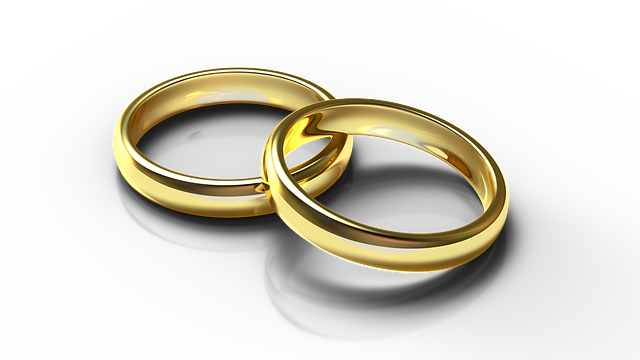
Within the United Kingdom, the legal framework surrounding the translation of marriage certificates is stringent and clear, designed to uphold the integrity and authenticity of official documents across different jurisdictions. The UK’s Home Office outlines specific requirements for translating official documents, including marriage certificates, to ensure that they are accepted by government departments, public bodies, and other institutions within the UK and abroad. A certified translation must be performed by a professional translator who is not only proficient in both languages but also familiar with legal terminology and the nuances of document translation. This ensures that every entry on the marriage certificate is accurately conveyed and that the translated document holds the same legal weight as its original version. Additionally, the translation should come with a statement of accuracy and a declaration from the translator, attesting to the truthfulness and completeness of their work. For international recognition or for situations where the marriage certificate needs to be presented to UK authorities, the translation may also require apostille or other certification to validate it for legal purposes within the UK’s jurisdiction. This certification verifies that the translation is a true and exact representation of the original document, thereby facilitating its acceptance in legal proceedings and official matters.
Key Considerations When Selecting a Marriage Certificate Translation Service Provider in the UK
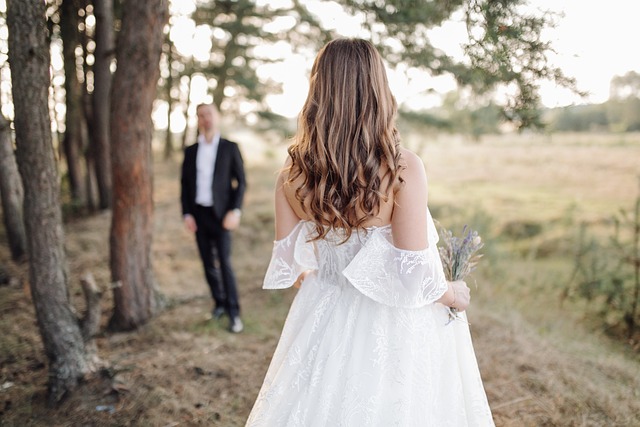
When embarking on the process of translating a marriage certificate in the UK, it is imperative to engage with a service provider who possesses both fluency in language and expertise in legal documentation. The accuracy and formal recognition of translated certificates are crucial for legal purposes, which means choosing a professional with certifications and a proven track record is non-negotiable. A reliable translation service should be well-versed in the marriage certificate translation UK regulations, ensuring that translations comply with both UK and foreign legal standards. Additionally, they must maintain up-to-date knowledge of immigration laws, as these can affect the recognition of your marriage certificate in different jurisdictions. Look for a provider that offers a comprehensive service, including certification and apostille services if required, to facilitate smooth processing by governmental bodies or international authorities. Their proficiency should extend beyond mere linguistic capabilities, encompassing cultural nuances and legal terminologies specific to matrimonial laws. This will ensure that the translated certificate accurately reflects the original document’s intent and legal validity, safeguarding your rights and the legitimacy of your marital union across international boundaries.
The Role of Accredited Translators for Marriage Certificate Translations in the UK

In the UK, the translation of a marriage certificate is a process that demands precision and credibility, especially when it pertains to legal matters. Accredited translators play a pivotal role in this sphere, ensuring that the translated document accurately reflects the original text. These professionals are not only well-versed in the nuances of both English and the source language but also hold certification from recognised bodies such as the Institute of Translation and Interpreting (ITI) or the Chartered Institute of Linguists (CIOL). This accreditation assures clients, including government departments, legal entities, and other authorities, that the translations are both accurate and reliable. The nuances of language, particularly within the context of formal documents like marriage certificates, can be complex; thus, the expertise of these translators is indispensable when it comes to legal processes such as immigration, adoption, or changing one’s name after marriage. In the UK, where marriages performed abroad need to be recognised domestically, the role of accredited translators becomes even more significant. They provide a legal bridge between international couples and the UK authorities, facilitating the smooth integration of these official documents into the UK’s legal framework with their marriage certificate translation UK services. This meticulous process is crucial for maintaining the integrity of legal records and ensuring that individuals can legally demonstrate their marital status within the UK’s legal system.
Navigating Official and Non-Official Marriage Certificate Translations in the UK

In the United Kingdom, navigating the requirements for marriage certificate translations can be a complex task due to the legal and ceremonial nuances that govern marital records. For individuals whose marriage certificates were issued in the UK, finding official translators who are accredited by the Home Office or Professional Translators’ Association is paramount when such documents are required for legal processes, such as immigration or international travel. These translations ensure that the information on the certificate remains accurate and legally binding across different jurisdictions. On the other hand, if the marriage certificates originate from outside the UK, it is equally crucial to engage with professional translation services that can provide certified translations accepted by UK authorities. Non-official translations may be less expensive and more readily available, but they often lack the necessary certification, which can render them ineffective for legal purposes. Thus, when seeking marriage certificate translations in the UK for official use, it is imperative to verify the credentials of the translation service and their compliance with the relevant legal standards to avoid complications or delays later on.
The Process of Marriage Certificate Translation: Steps and Documentation Required in the UK
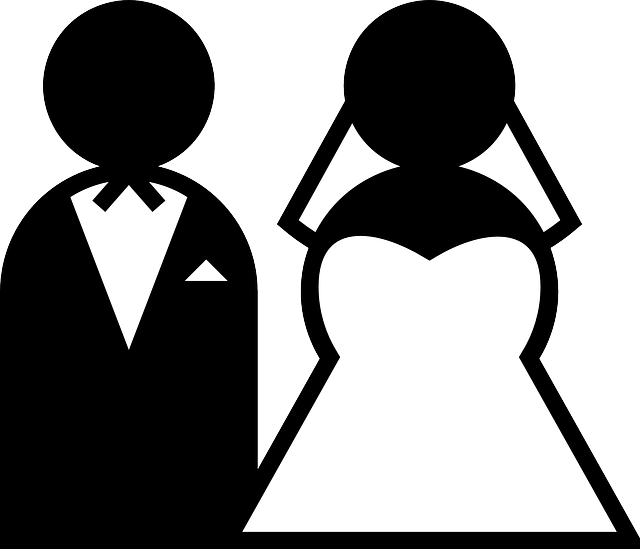
When a married couple resides in the UK and requires their marriage certificate to be recognized by legal entities within the country or for use abroad, a translation of the document is necessary. The process of marriage certificate translation in the UK involves several critical steps to ensure the translated document holds legal validity. Firstly, individuals must obtain the original marriage certificate from the issuing authority, which could be the local registration office or the church where the ceremony took place. This certificate serves as the primary source document for translation.
Upon acquiring the certificate, the next step is to engage a professional translator who specialises in legal documents and holds the necessary accreditation, such as being a member of the Institute of Translation & Interpreting (ITI) or Association of Translators & Interpreters (ATI). The translator must translate the certificate into the required language, ensuring accuracy and adherence to the source text. After completion, the translation must undergo certification by an authorised signatory within the UK, typically a solicitor or notary public. This certification confirms that the translated document is a true and accurate representation of the original. Finally, depending on the destination country’s requirements, the translation may need to be legalised or apostilled through the Foreign, Commonwealth & Development Office (FCDO) to be recognised by foreign authorities. This meticulous process ensures that marriage certificate translations in the UK meet legal standards and are accepted for various official purposes globally.
Challenges in Translating Marriage Certificates for Legal Purposes in the UK
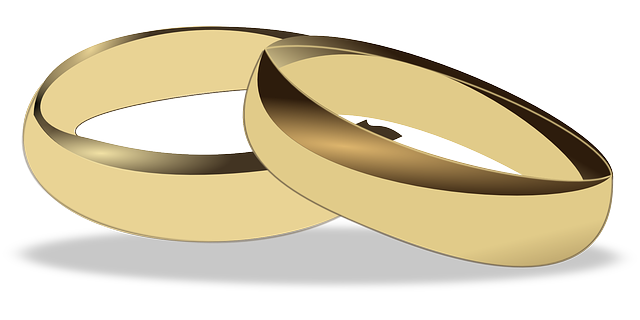
In the United Kingdom, marriage certificate translation for legal purposes presents a unique set of challenges. The intricacies of matrimonial certificates often necessitate precise and accurate translations to be acknowledged by UK authorities. These documents are not merely records of a union; they are critical for legal processes such as immigration, changing legal names, and accessing specific rights and benefits. The complexity arises from the need to maintain the original document’s integrity while adapting it to meet UK legal standards. Translators must navigate the nuances of both the source and target languages, ensuring that every detail—from names and dates to the specific legal terms used—is accurately conveyed. This involves not only a deep understanding of linguistics but also knowledge of the legal framework governing marriage certificates in the UK. The translation must be officially certified to be accepted by government bodies, which requires adherence to strict guidelines and authentication protocols. As a result, seeking professional translation services that specialise in legal document translation is often imperative for individuals navigating these requirements.
The process of translating marriage certificates for legal purposes in the UK is further complicated by the multitude of languages spoken within the country’s diverse population. Each language carries its own set of dialects, idioms, and cultural nuances that can affect the translation’s legality and acceptance. Additionally, the translator must be aware of the legal implications of their work, as errors or omissions can lead to complications with legal procedures. To address these challenges, professional translators undergo rigorous training and often hold specific certifications that demonstrate their proficiency in translating legal documents like marriage certificates. They work within a framework of quality assurance processes to ensure the translated document aligns with UK regulations and is ready for legal submission. This meticulous approach ensures that individuals and couples can confidently use their translated marriage certificates for all intended legal purposes within the UK’s jurisdiction.
Ensuring Authenticity and Legal Recognition of Translated Marriage Certificates in the UK
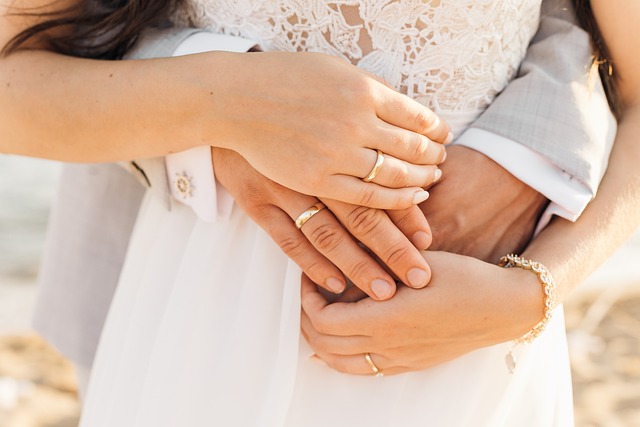
When navigating the legal requirements of marriage certificate translation in the United Kingdom, authenticity and recognition are paramount. To ensure that a translated marriage certificate holds legal validity within the UK, it is imperative to engage with professional translators who are accredited by relevant authorities. These professionals understand the nuances of legal document translation and adhere to the standards set forth by organisations such as the Association of Translation Companies (ATC) or the Institute of Translation and Interpreting (ITI). They employ certified translations, which come with a statement of accuracy and a signature from the translator, often accompanied by an official stamp. This verification process attests to the document’s authenticity, making it legally acceptable for use in UK legal proceedings, immigration processes, or other official matters. The translation must accurately convey all details from the original certificate, including dates, names, and any official seals or stamps, while also reflecting the precise terminology as required by UK law. Opting for a translation service that specialises in marriage certificate translations UK-wide can facilitate a smoother legal process, ensuring that the translated document will be legally recognised and accepted without issue.
How to Verify and Authenticate Marriage Certificate Translations in the UK for International Use

When navigating the legal requirements for using a marriage certificate abroad, obtaining an accurate and certified translation is paramount. In the UK, a marriage certificate translation must undergo strict verification and authentication processes to be internationally recognised. To commence this process, one should initially engage with a Professional Translator who is registered with the Institute of Translation and Interpreting (ITI) or the Chartered Institute of Linguists (CIOL). These experts specialise in marriage certificate translation UK and are adept at providing translations that meet the standards required by foreign authorities.
Once the initial translation is complete, the translated document must be certified by an appropriate authority. This typically involves having the translation stamped and signed by a translator who is registered with one of the above-mentioned institutions. Subsequently, the certified translation should be legally authenticated by the UK Home Office or Foreign and Commonwealth Office (FCO). The FCO provides a Certification Service which includes an apostille for documents intended for countries that are members of the Hague Convention of 1961. This authentication confirms that the signature, seal, or stamp on the translation is legitimate and can be verified. For countries not part of the convention, additional steps, such as legalisation through a British diplomatic or consular mission in the destination country, may be necessary to ensure the marriage certificate translation UK holds international validity. Ensuring these steps are taken diligently will facilitate the recognition of your marriage certificate in any international jurisdiction you may encounter.
In concluding, the intricacies of translating marriage certificates within the legal framework of the UK are multifaceted and demand meticulous attention. Understanding the necessity of engaging professional translation services for a marriage certificate translation UK residents require is paramount, as it ensures both legal compliance and accurate representation of the original document. Selecting a service provider that specialises in this niche area guarantees not only the linguistic precision but also the adherence to UK regulations. Accredited translators play an indispensable role in this process, bridging cultural and legal nuances with their expertise. The translation of a marriage certificate for use in the UK is not merely a linguistic task but a legal one that can have significant implications. Therefore, it is crucial to follow the outlined steps, provide all necessary documentation, and choose translators who can authenticate and verify the translated document for international use. By doing so, individuals can navigate the legal landscape with confidence, ensuring their marriage certificate translation UK compliant, and thus, legally recognized both domestically and abroad.
